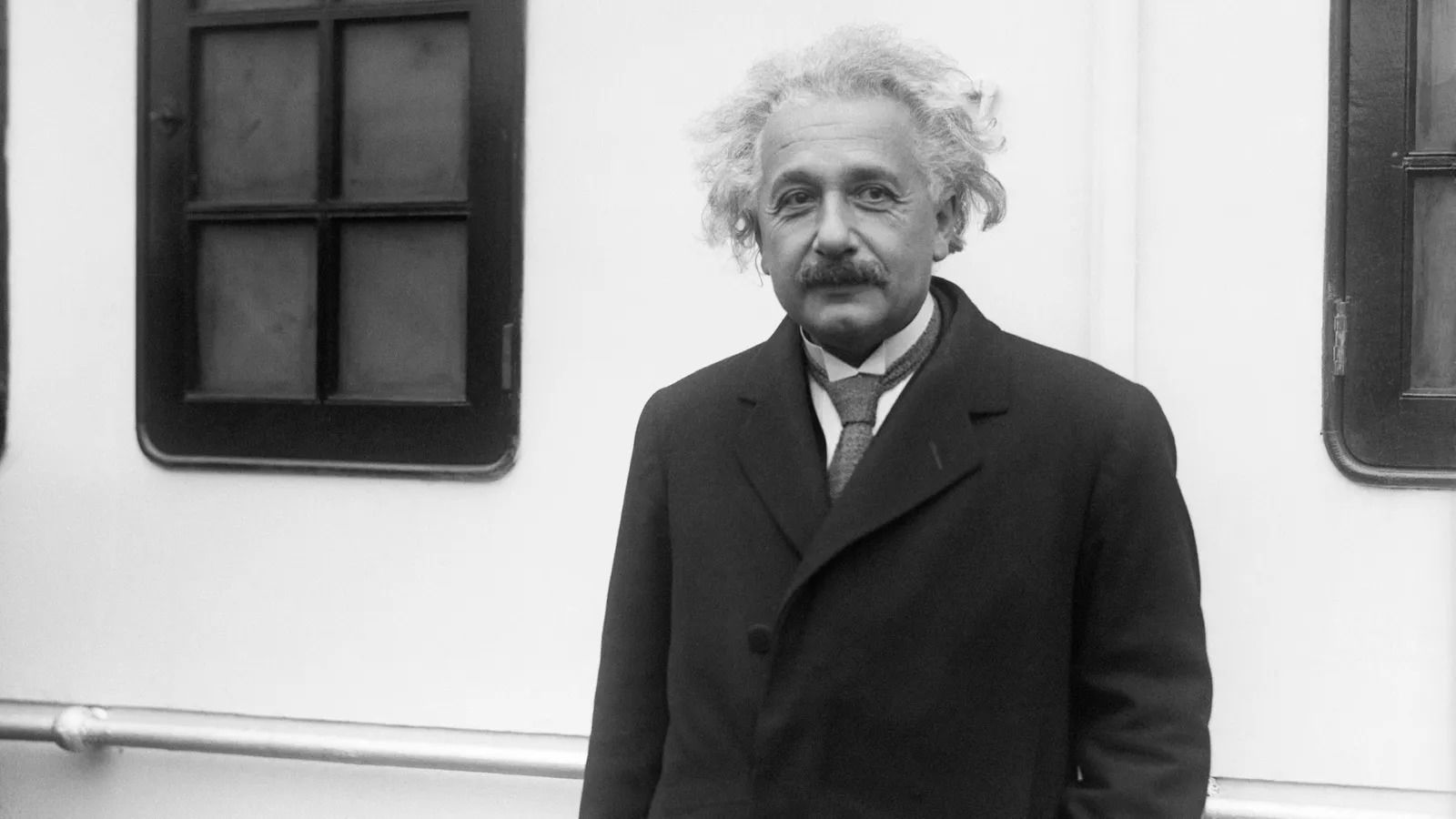
Intuition: When is it right to trust your gut instincts?
When asked about the source of his genius, Albert Einstein had no doubts. “I believe in intuitions and inspirations. I sometimes feel that I am right. I do not know that I am,” he told the Saturday Evening Post in 1929. It was much better to trust those instincts and test them later than to dismiss them out of hand, he said.
The physicist was by no means alone in this philosophy. It was also, apparently, a big part of Coco Chanel’s strategy. “Fashion is in the air, born upon the wind. One intuits it,” she said.
You may recognise the sensation all the same. Whether you are looking at a new apartment, considering a possible new job or judging someone’s honesty, you may have an ineffable hunch when something is right or wrong – without being able to articulate the reasons for your judgement.
It can be tempting to view our gut instincts as a kind of mysterious ‘sixth sense’, but there is no need to appeal to the paranormal to explain intuition. In the past two decades, psychologists and neuroscientists have made enormous strides in identifying the sources of our gut instincts, and their essential role in our lives. Along the way, their research has identified the specific situations in which our intuition is likely to lead us down the right path, and the times that it leads us astray – knowledge that can help us all to make better decisions.
The mind in the body
The scientific understanding of intuition begins with a laboratory game known as the Iowa Gambling Task.
Participants are presented with four stacks of cards on a computer screen. Each time they turn a card, they will receive either a monetary reward or a penalty. Two of the decks tend to offer relatively large rewards, but even bigger penalties – meaning that, over many turns, they will lead to a loss. The other two decks provide relatively small rewards but even smaller penalties, meaning that they are the safer option.
 Albert Einstein was a particular proponent of going with intuition and instinct
Albert Einstein was a particular proponent of going with intuition and instinct
The participants aren’t told which decks are going to be profitable, but after about 40 attempts, many people start to form a hunch of which ones will lead to bigger wins. The participants’ nonconscious mind, it seems, has started to notice the patterns of the wins and losses, even if they cannot explain the reason that they are making these choices, beyond having a “gut feeling”.
Importantly, the improvements in performance often follow systematic physiological changes as the participants make their decisions. When they start to approach the riskier decks, for instance, most people begin to show a stress response, such as a slight change to the heart’s beat and sweating of the skin. These changes – known as “somatic markers” – seem to act as a warning that prevents the participant from making the wrong choice, and they may underlie the sense of having a gut instinct.
Without this kind of intuition, people can run into serious problems in real life. Some neurological patients are unable to form somatic markers, for instance. Without gut feelings to guide them, they often remain stuck in ‘analysis paralysis’ when asked to make a choice. And when they do take a decision, they fail to see the risks in what they are doing. They may invest all their money in a poor business proposal, for example, while others would have had a strong instinct to distrust the venture.
Such observations suggest that our intuitions are an essential part of our decision-making toolkit – that should be ignored at our peril.
The expert eye
The evidence for the importance of gut feelings is strongest in studies of lie detection. People tend to be more accurate at judging someone’s honesty – and whether they are lying about a particular event – if they are asked to go with their intuitions, compared to when they are asked to think it through and verbalise their reasons.
In other situations, the strength of our intuitions will depend on the extent of our experiences. The unconscious brain rifles through its stored knowledge to find the best answer to our problems, without us consciously recalling the precise memories that power those feelings.
People tend to be more accurate at judging someone’s honesty – and whether they are lying about a particular event – if they are asked to go with their intuitions
Consider an experiment led by Erik Dane, a professor of management at Rice University in Texas. In 2012, his research team asked students to view a series of designer handbags – some of which were authentic products and some of which were realistic counterfeits.
Half the participants were asked to ignore their gut instincts and list all the features they would look for to determine whether the handbag was real or fake. The rest were told to go with their intuitions – to allow their feelings to guide their judgement. The researchers also questioned the participants about their buying habits and whether they owned many designer items.
For the participants using the analytical approach, their previous experience made little difference: they all performed roughly the same. For the participants who had been asked to use their intuition, however, expertise made a huge difference – vastly increasing the accuracy of their gut reactions. Indeed, the experts using their intuitions were about 20% more accurate than those using analysis alone.
Vinod Vincent, an associate professor at Clayton State University in Georgia, US, found very similar results when looking at employers’ recruitment decisions. He presented participants with sample answers from a range of candidates applying for positions in health care and asked them to pick the best choice. As in Dane’s experiment, some were asked to go with their gut instincts. (“Your decision should be based on your first impression about the candidates,” they were told.) Others were asked to use deliberation, logic and analysis. (“Carefully consider all available information before making a decision,” these were told. “Ignore any first impression or gut instinct-based choices.”)
For undergraduate students who had no experience in recruitment, it was possible to work out which candidates stood out – but they needed to apply deliberate scrutiny, weighing up the pros and cons of each one. When they attempted to use their intuition, they were generally less accurate.
 In one experiment, participants identifying counterfeit fakes had better
accuracy if they followed their instincts instead of taking an
analytical approach
In one experiment, participants identifying counterfeit fakes had better
accuracy if they followed their instincts instead of taking an
analytical approach
This was not the case for experts who had worked as recruiters in health care staffing companies; Vincent found they had very accurate gut instincts of which candidate would be most appropriate, without needing to think, step-by-step, through all the different criteria. And the more experience they had, the better they were. “If you are an expert, you will know all the idiosyncrasies that may make a candidate good at the job, even if it is hard to articulate,” says Vincent.
Vincent emphasises that people’s gut instincts should not replace analytical thought, and we should be aware of the fact that they can sometimes be swayed by unconscious biases. (If there is a chance that racism, ageism or sexism is clouding your judgement, you might be especially wary of what your gut is telling you.) In general, however, his research confirms that an expert’s intuitive feelings can be important sources of information and should play some role in the decision-making process.
Don’t overthink it
The power of intuitive decision-making may be especially important when we are processing a high volume of complex information that is too difficult to remember precisely. In these cases, we can benefit from letting our minds wander to another – unrelated activity – as the unconscious brain crunches the data and makes the decision for us.
In a series of experiments, researchers presented participants with lengthy details about a series of apartments. After forming their first impressions, some of the participants were encouraged to consciously weigh up the different options before making their choice. The rest were asked to try a series of anagrams – a distraction that was designed to prevent the participants from using their analytical processing to come to their decision on the apartments.
We can benefit from letting our minds wander to another – unrelated activity – as the unconscious brain crunches the data and makes the decision for us
Surprisingly, the researchers found the participants who had thought more carefully about their choice were considerably less likely to pick the apartment that had – objectively – the biggest number of attractive attributes. Their attempts to analyse the different options had muddied their judgement, leading them to choose one of the less desirable options. The people who had been distracted by the anagrams, in contrast, had been forced to rely on their intuitive impressions – which turned out to be more accurate.
While some studies have suggested we can go with our first impression immediately, there often does seem to be an advantage in delaying the decision as we focus on some other activity. According to Marlène Abadie, a cognitive psychologist at Aix-Marseille University in Southern France, the pause allows the unconscious mind to form an accurate gist from the complex information that had been presented, which will in turn increase the accuracy of our intuitive judgement.
This guidance may be useful in many similar scenarios in which we are forming our impressions after an information overload, she says. “It could be relevant whenever you have to choose between several consumer products that are described by several attributes – a cell phone, a computer, a TV, a sofa, a fridge or an oven.” While shopping for these items, you might choose to go for a coffee and flick through a magazine, for example, before you make your final decision.
Emotional intelligence
According to the latest research, the quality of someone’s gut instincts may depend on their overall emotional intelligence (EI). And by learning to increase our EI, we may therefore strengthen our intuitive decision-making.
Psychologists assess EI using a series of questions that measure, for example, people’s capacity to identify the emotions expressed in others’ faces, and their capacity to predict the changes in someone’s mood, given their circumstances.
Jeremy Yip, an assistant professor of management at Georgetown University in Washington, DC, recently compared people’s EI scores to their performance on the Iowa Gambling Task. While most participants seemed to show a heightened stress response when they considered choosing the “bad” decks, people with lower EI consistently misread their own bodily signals.
For these participants with lower EI, a greater stress response seemed to act as an encouragement to take the risky – and ultimately unprofitable – cards. They simply didn’t seem to recognise the feeling as a warning. “They might have misinterpreted their physiological arousal as excitement, so that they became more risk-taking,” says Yip.
Fortunately, it is possible to train EI. Anna Alkozei at the University of Arizona in Tucson, US, recently designed an online course with modules that encouraged trainees to think more carefully about the ways that different emotions can be perceived and the ways that feelings such as physiological arousal may influence decision making.
Taking two lessons a week for three weeks, Alkozei’s participants showed a significant improvement in a test of EI – and this translated to enhanced performance on the Iowa Gambling Task. Participants in a control group – who instead took an online course on the environment – did not show such improvements.
If you want to fine-tune your intuition, then, you might first try to get in touch with your emotions more generally – carefully interrogating what exactly you are feeling and the sources of that mood. Over time, you may find it easier discern when you are receiving a genuine and accurate signal. Your gut feelings with never be completely fool proof, but with practice they can become an important guide.











